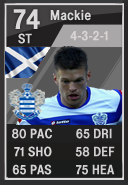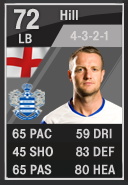Post by Macmoish on Nov 11, 2010 16:00:17 GMT
BBC
Why does football violence happen?
By Jemima Laing
BBC Devon
Exeter University's Professor Anthony King has written two books looking at the transformation of football and fan culture in the UK and Europe.
He believes the violence at the Plymouth Argyle - Exeter City match on 9 November 2010 was "highly likely".
He explained that there are generally two kinds of people who create violence at football matches.
"There are the elite, the committed hooligans," said the professor of Sociology at the University of Exeter.
"This group are sometimes dismissed in the press as thugs but they are committed to a special kind of violence.
"More unusual are the completely 'normal' fans who have no pre-meditated desire to get involved who then do get involved - what police call Category B fans.
"They have no prior intention to cause violence but join in once it starts.
"I think there was probably quite a lot of that going on last night."
He says there are three factors which come into play which can lead to trouble.
"The first if if there is some kind of political background to the game, for instance England versus Germany, that informs the game.
"So clearly in this case, as it was a derby, there is that local 'political' dynamic.
Prof King has written books about fan culture
"Then there is the desire for fans to assert themselves over their rivals.
"The fan groups will bring to the fore those background factors and so start a mutual spiral of provocation and intimidation."
But Prof King says this does not always lead to violence, numbers are key too.
"What you need is a critical mass on both sides - and what seemed to happen in this case was that all three elements were aligned."
Prof King says the result of the game is not necessarily the trigger for violence.
"Hooliganism is not caused by what goes on on the pitch, although it can be a factor in the intimidation and can precipitate violence.
"If there's a late goal, like there was last night, a sense of disappointment and grievance is heightened, and conversely a sense of euphoria on the other side.
"A bad foul on a player can have the same effect.
"All you need is a small group of motivated people - the men involved can't be seen to be backing down from their mutually avowed rivalry."
So what does Prof King think can be done ahead of the 11 December fixture, which will see the teams face each other at Home Park once again?
'Pre-emptive bans'
"British police are actually quite good at this sort of thing now - especially compared with other places in Europe.
"An immediate thing is obviously to increase levels of policing.
"Pre-emptive bans have been proven to work, how we feel about that as a society is another matter.
"The way ticketing is organised can be really important, but again that can be unpopular."
So is there any way of stamping out violence altogether?
"In the longer term I'm really sceptical that hooliganism will ever disappear," said Prof King.
"I think violence will always be part of football, it's just about mitigating it when and if you can."
news.bbc.co.uk/local/devon/hi/people_and_places/newsid_9176000/9176519.stm
Why does football violence happen?
By Jemima Laing
BBC Devon
Exeter University's Professor Anthony King has written two books looking at the transformation of football and fan culture in the UK and Europe.
He believes the violence at the Plymouth Argyle - Exeter City match on 9 November 2010 was "highly likely".
He explained that there are generally two kinds of people who create violence at football matches.
"There are the elite, the committed hooligans," said the professor of Sociology at the University of Exeter.
"This group are sometimes dismissed in the press as thugs but they are committed to a special kind of violence.
"More unusual are the completely 'normal' fans who have no pre-meditated desire to get involved who then do get involved - what police call Category B fans.
"They have no prior intention to cause violence but join in once it starts.
"I think there was probably quite a lot of that going on last night."
He says there are three factors which come into play which can lead to trouble.
"The first if if there is some kind of political background to the game, for instance England versus Germany, that informs the game.
"So clearly in this case, as it was a derby, there is that local 'political' dynamic.
Prof King has written books about fan culture
"Then there is the desire for fans to assert themselves over their rivals.
"The fan groups will bring to the fore those background factors and so start a mutual spiral of provocation and intimidation."
But Prof King says this does not always lead to violence, numbers are key too.
"What you need is a critical mass on both sides - and what seemed to happen in this case was that all three elements were aligned."
Prof King says the result of the game is not necessarily the trigger for violence.
"Hooliganism is not caused by what goes on on the pitch, although it can be a factor in the intimidation and can precipitate violence.
"If there's a late goal, like there was last night, a sense of disappointment and grievance is heightened, and conversely a sense of euphoria on the other side.
"A bad foul on a player can have the same effect.
"All you need is a small group of motivated people - the men involved can't be seen to be backing down from their mutually avowed rivalry."
So what does Prof King think can be done ahead of the 11 December fixture, which will see the teams face each other at Home Park once again?
'Pre-emptive bans'
"British police are actually quite good at this sort of thing now - especially compared with other places in Europe.
"An immediate thing is obviously to increase levels of policing.
"Pre-emptive bans have been proven to work, how we feel about that as a society is another matter.
"The way ticketing is organised can be really important, but again that can be unpopular."
So is there any way of stamping out violence altogether?
"In the longer term I'm really sceptical that hooliganism will ever disappear," said Prof King.
"I think violence will always be part of football, it's just about mitigating it when and if you can."
news.bbc.co.uk/local/devon/hi/people_and_places/newsid_9176000/9176519.stm







